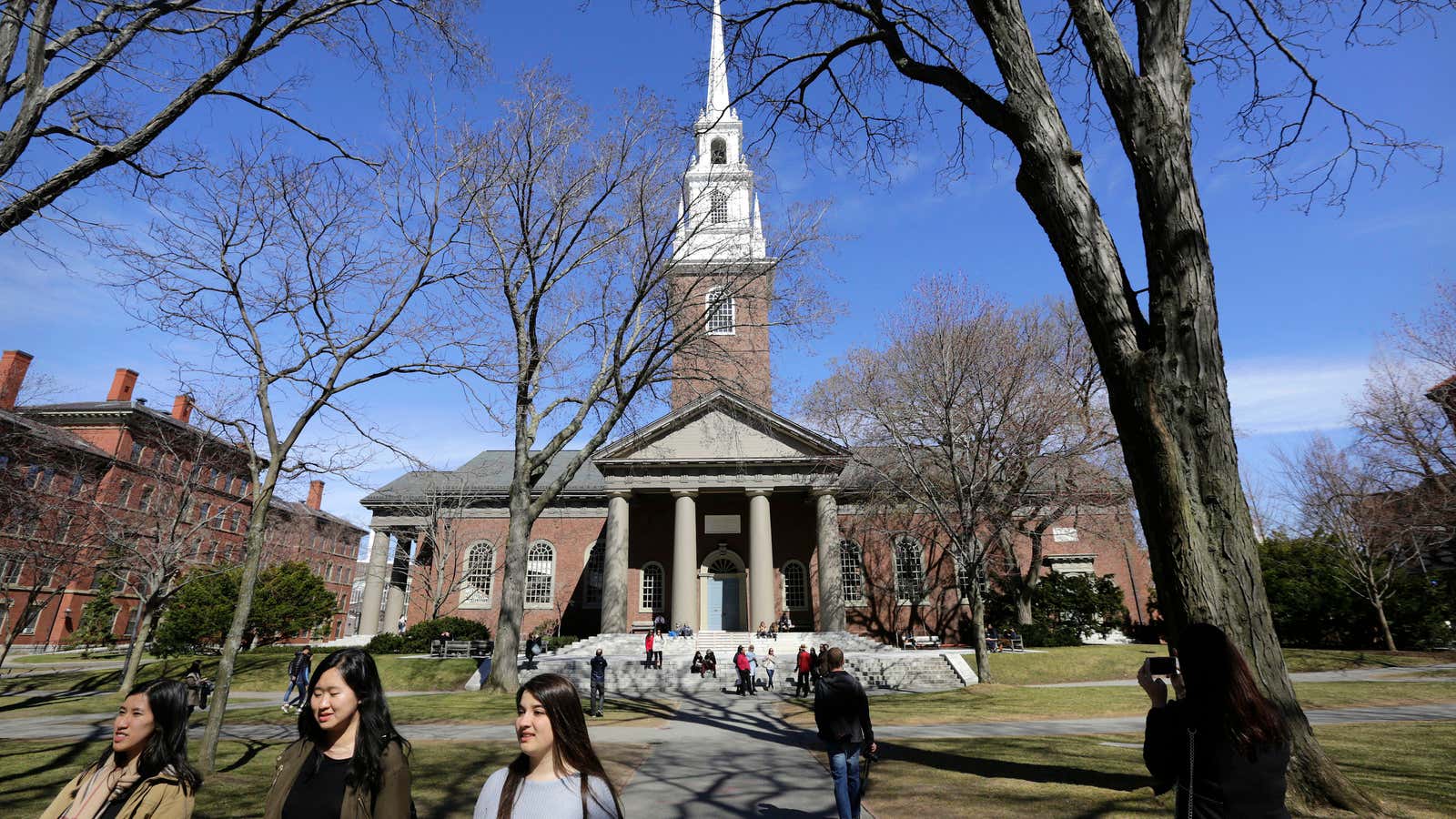At the start of yesterday, Harvard’s men’s soccer team was top of the Ivy League and well on its way to a spot in this year’s NCAA tournament. By the end of the day, the remainder of its season had been canceled. It wasn’t a willing forfeit.
The university suspended the team after it discovered that the team’s players were routinely putting out “vulgar and explicit documents” rating the women’s soccer team on their looks.
According to Harvard’s student newspaper, the men’s team in 2012 produced an extensive “scouting report” detailing the appearances and hypothetical favored sexual positions of individual female recruits—and then apparently made it into something of a yearly tradition. The documents included such remarks as:
- “She looks like the kind of girl who both likes to dominate and likes to be dominated.”
- “Her gum-to-tooth ratio is about one to one.”
- “Yeah, she wants cock.”
- “She seems to be very strong, tall, and manly, so I gave her a three because I felt bad.”
Unpleasant as the discovery might be, Harvard is only the latest US school to have a sports team tied up in a sexism-related scandal. Yale, its chief Ivy League rival, saw an oddly similar “scouting report” of freshmen women surface a few years ago. Other prominent campuses that are currently grappling with even more serious issues include (but are not limited to):
- Baylor University, where the football team is facing lawsuits for treating the school as a ”hunting ground” for sexual assault
- Stanford University, where swimmer Brock Turner was sentenced to six months in county jail for sexually assaulting an unconscious woman
- The University of Richmond, where a female student said she was raped by an athlete in an off-campus house and ignored by the school administration
- The University of North Carolina, which allegedly told an athlete “not to sweat the rape allegations” brought against him.
(The mixing of sports and sex is also troublingly peppering the US presidential election.)
Though college sports teams are getting the majority of the scrutiny of late, sexual misconduct has also been a longstanding issue on US campuses at large, especially in the last few years as administrations adopt more open policies about reporting assault and students speak out on social media and other platforms.
The “scouting report” from this week’s Harvard news is almost reminiscent of Mark Zuckerberg’s “Hot or Not” website—which the now-billionaire made as an undergraduate in 2003 before he founded Facebook—suggesting the root of the problem may go deeper than athletic teams alone.
